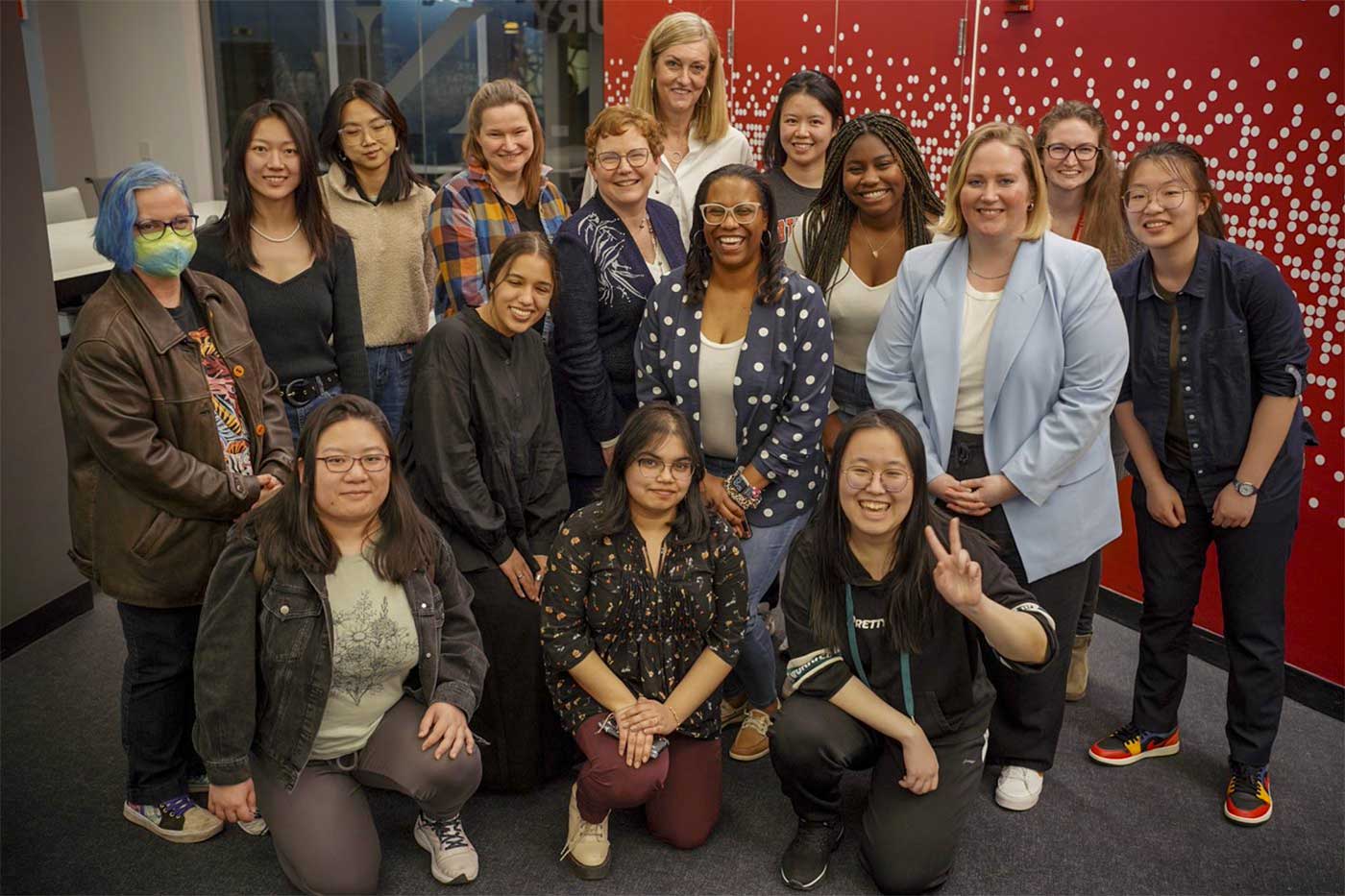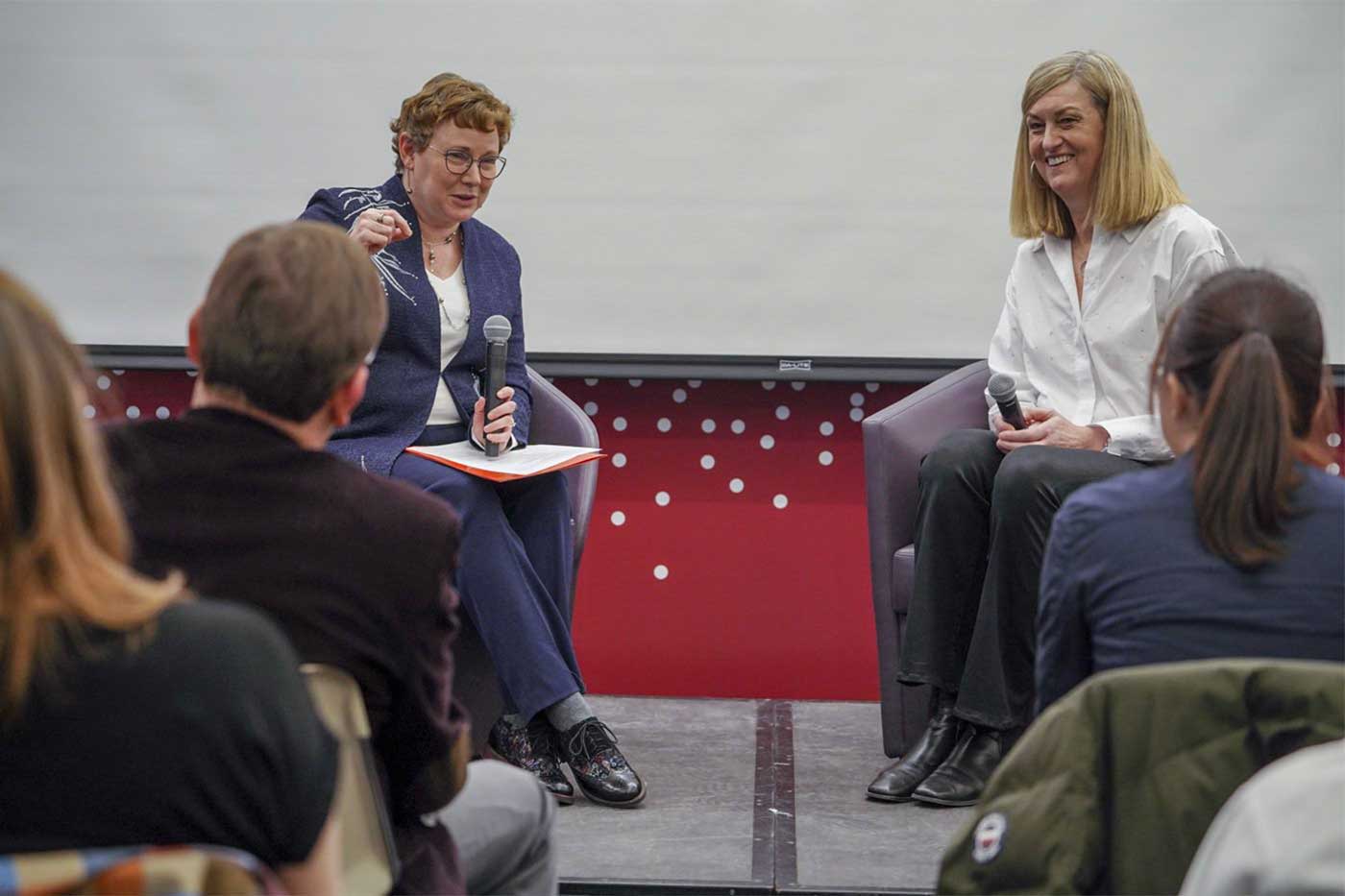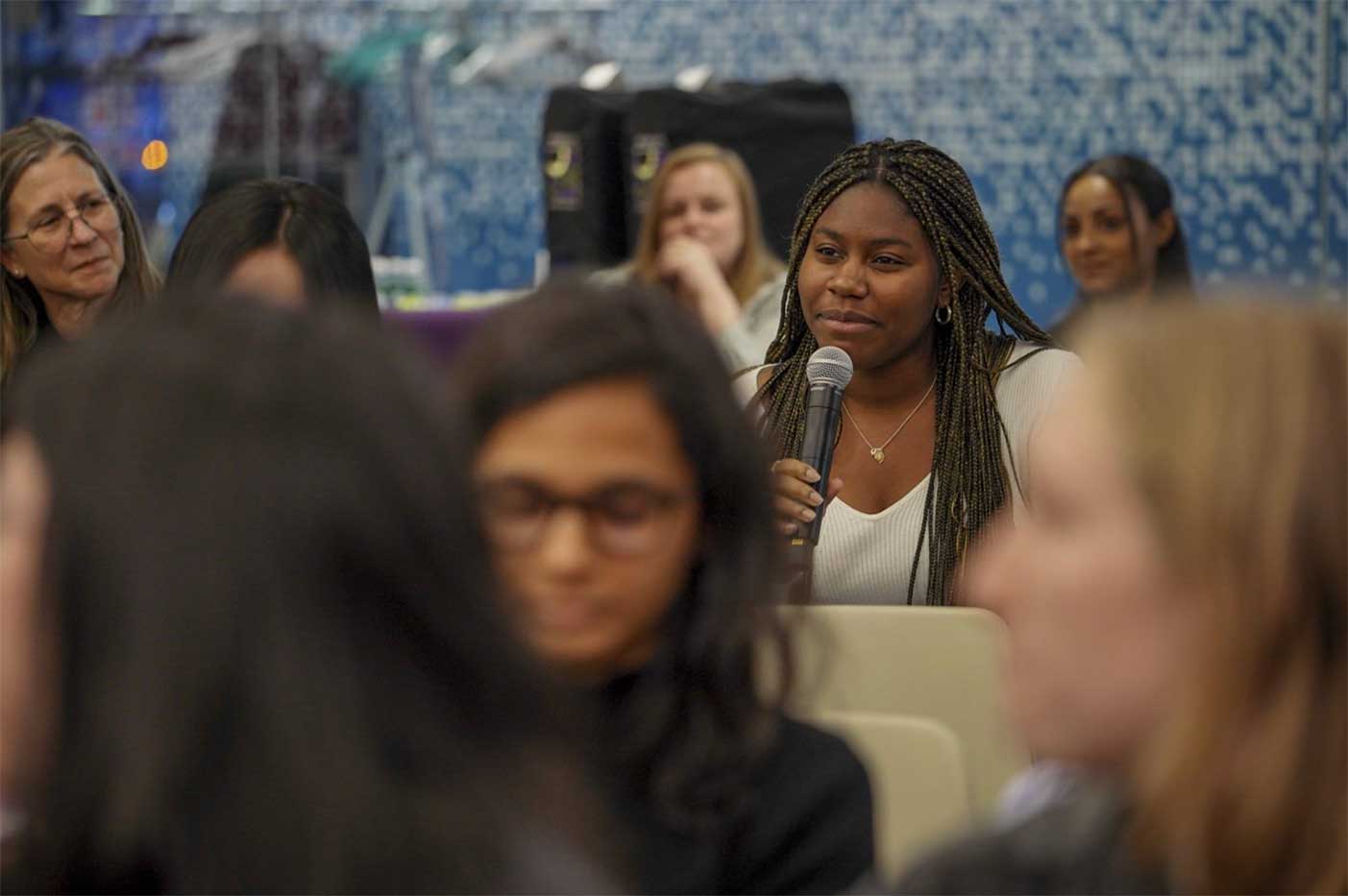In partnering with Rewriting the Code, Khoury College aims to empower women in tech
Author: Sarah Olender
Date: 02.28.23
Rewriting the Code, an organization that helps empower women in computer science, announced on February 16 that they selected Khoury College as their first official collegiate partner.
 Photos by Jodi Hilton.
Photos by Jodi Hilton.The announcement came during a fireside-style chat between Khoury College Dean Elizabeth Mynatt and Rewriting the Code founder Sue Harnett, an event attended by existing RTC members and Khoury community members. The pair discussed the future of the partnership and its goal of creating a better future for women in computer science.
RTC is an international nonprofit of about 17,000 undergraduates, graduates, and young professionals around the world striving to create a more inclusive community within tech and computer science. The organization helps women in computer science to network with each other and employers, and it also provides students and early-career tech professionals with mentorship and networking opportunities.
While spending her college career studying economics and healthcare administration and earning accolades as one of the top scorers in Duke women’s basketball history, Harnett also recognized a problem in the world of computer science — the large discrepancy in the number of men and women working in the field. Using her leadership and organizational skills, Harnett founded RTC seven years ago, hoping to encourage more women to enter the field.
“I was introduced to the fact that women were walking away from something that they loved for reasons that were addressable,” Harnett said. “I just couldn’t stand by and watch that happen, so I feel incredibly fortunate that we get to work with women from across the United States and the globe to try and have as big an impact as possible.”
Northeastern and RTC are striving to empower all women in tech by building trusted communities and networks designed for female CS students and those early in their careers. Mynatt recalled many times where she was the only woman in a computer science class, but over time, she said, things began to change. Early in her career at Georgia Tech, Mynatt helped to create a new PhD program in human-centered computing. After the program was up and running, she began to see a difference in both the people who were joining and their contributions; the program had enabled greater diversity in students and research topics.
“Not only did we have more women in the building, but they asked different questions, they had different research goals, they brought different agendas with them for what impact they wanted to make in the world,” Mynatt said. By having more women in the program, more perspectives entered the classrooms, and learning was enriched.

During her time at Khoury College, Mynatt has spotlighted and furthered the college’s gender diversity goals. At the RTC event, she noted that the college’s most recent fall undergraduate class is 47 percent female and that the Align master’s program is currently 54 percent women, both numbers well ahead of the field’s averages. The College strives to keep those numbers high to bring more equity to the profession, as well as more diverse perspectives into Khoury classrooms.
After Mynatt and Harnett introduced the partnership and discussed their experiences, career goals, and journeys, fifth-year computer science and economics major Amina Haida came forward to talk about how impactful Rewriting the Code was throughout her time at Khoury College. Haida joined RTC five years ago as a freshman in search of a community and a place to network with other women. RTC became a great place for her to do this, and she’s been a part of the organization for the last few years. When she was on co-op in New York City, she even got the chance to attend an RTC event and network with women and companies from another region.
Haida shared that she struggled with impostor syndrome while in her computer science classes. She credits her regained confidence to organizations like RTC, which helped her see that other people who looked like her also felt the same way.
“I got to see other women be vulnerable and say those same feelings that I was feeling,” she said. “There was that vulnerable side to RTC that was super helpful.”
The event concluded with an opportunity for the community members in attendance to ask Mynatt and Harnett questions. With about 30 students of all ages and from both graduate and undergraduate programs in attendance, nearly every student participated. Their questions — largely about how to join RTC and network through the organization — showed the community’s excitement for the new partnership, and for the work to come.

The Khoury Network: Be in the know
Subscribe now to our monthly newsletter for the latest stories and achievements of our students and faculty